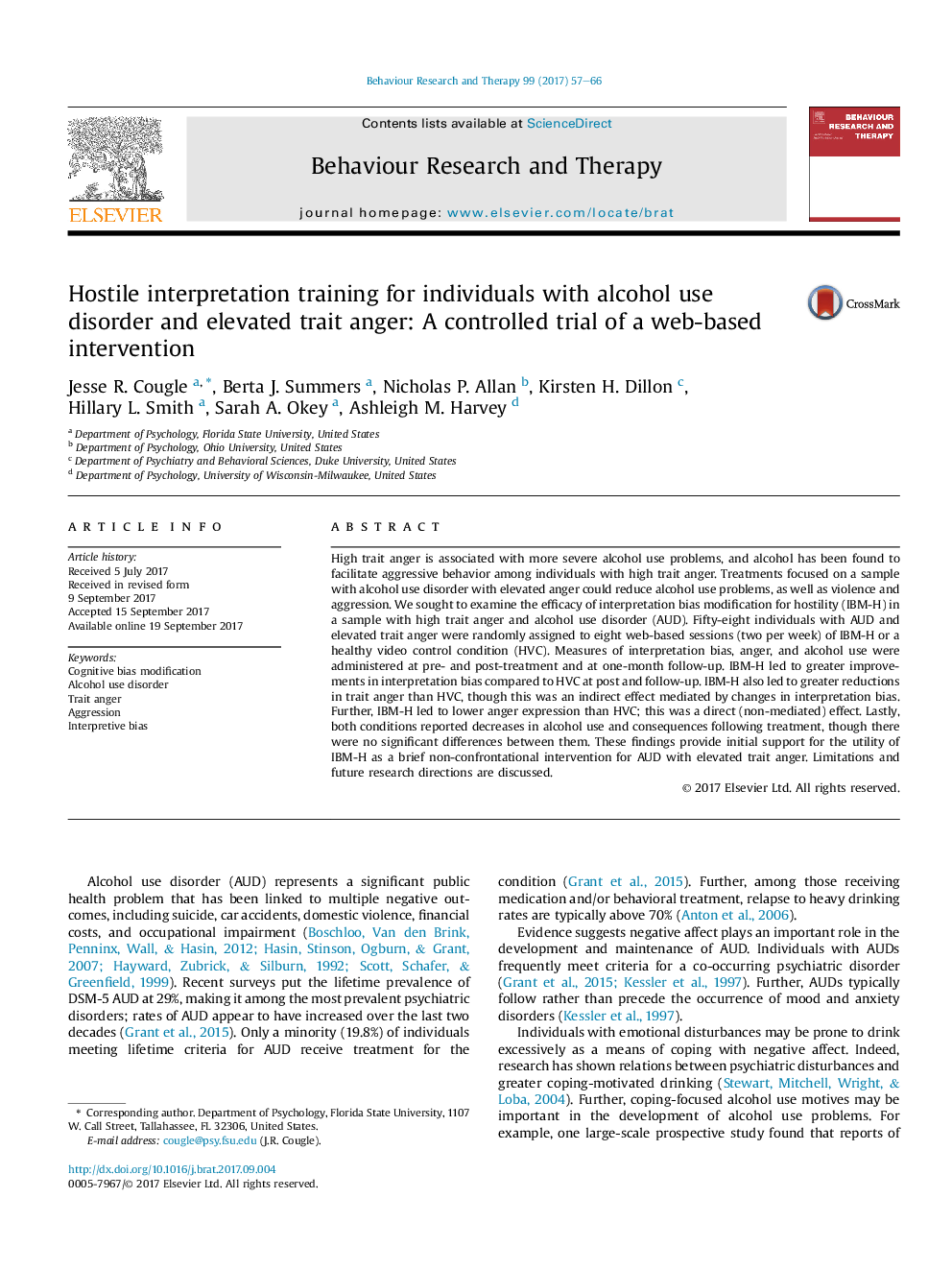ترجمه فارسی عنوان مقاله
آموزش تفسیر خصمانه برای افراد مبتلا به اختلال مصرف الکل و خشم سرخط: محاکمه تحت کنترل مداخله مبتنی بر وب
عنوان انگلیسی
Hostile interpretation training for individuals with alcohol use disorder and elevated trait anger: A controlled trial of a web-based intervention
| کد مقاله | سال انتشار | تعداد صفحات مقاله انگلیسی |
|---|---|---|
| 119250 | 2017 | 10 صفحه PDF |
منبع

Publisher : Elsevier - Science Direct (الزویر - ساینس دایرکت)
Journal : Behaviour Research and Therapy, Volume 99, December 2017, Pages 57-66
ترجمه کلمات کلیدی
اصلاح تعصب شناختی، اختلال مصرف الکل، عصبانیت پرخاشگری تعصب تفسیری،
کلمات کلیدی انگلیسی
Cognitive bias modification; Alcohol use disorder; Trait anger; Aggression; Interpretive bias;

